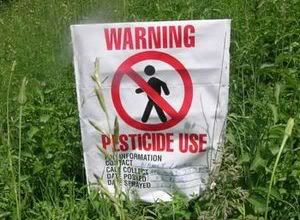
|
|
|
|
|
|
|
|
|
|
|
|
|
|
|
|
|
|
|
|
|
|
|
|
|
|
|
|
|
|
|
|
 Aloe PlusALOE PLUS - Soothing Digestive Support NOW AVAILABLE with biocellular micellization! Good health begins with proper digestion. The Aloe Vera Concentrate in ALOE PLUS is soothing to the digestive system, preparing the way for vitamins and nutrients to be absorbed efficiently.* Aloe PlusALOE PLUS - Soothing Digestive Support NOW AVAILABLE with biocellular micellization! Good health begins with proper digestion. The Aloe Vera Concentrate in ALOE PLUS is soothing to the digestive system, preparing the way for vitamins and nutrients to be absorbed efficiently.*
|
 Cal/Mag 100CAL/MAG 100 - Optimal Bone Protection - A Complete Calcium and Magnesium Supplement: Enhances Skeletal and Other Body Systems. * Cal/Mag 100CAL/MAG 100 - Optimal Bone Protection - A Complete Calcium and Magnesium Supplement: Enhances Skeletal and Other Body Systems. *
|
Be careful what you eat. A study published in the May 2010 issue of Pediatrics, revealed that children exposed to the pesticide organophosphate have an increased risk of attention-deficit hyperactivity disorder. The U.S Environmental Protection Agency (EPA) said that organophosphate pesticides were originally used as nerve agents in WWII, but have evolved into the most widely used insecticide on the market. In 2001, the United States used approximately 73 million pounds of organophosphate. The EPA states that organophosphate “poses significant health risks to people who are exposed to them through their work.”

What Can We Do
Pesticide Study
The study’s research team, led by Maryse Bouchard of the University of Montreal, analyzed urine samples of 1,139 children ages 8 to 15. Bouchard measured a child’s organophosphate exposure based on the amount of dialkyl phosphate metabolites (DAP) in a child’s urine. The study found that with each tenfold increase in DAP, the odds of having attention-deficit hyperactive disorder rose by more than half. Bouchard says, “We saw that children with above-average levels of exposure had twice the risk of ADHD as those with undetectable levels.” Croplife America, the representative of pesticide manufacturers, claims that organophosphate is an EPA approved substance and more research is needed to link pesticide exposure with attention-deficit hyperactive disorder.

Negative Impact of Organophosphate
 Deluxe Nutritional Energy ProgramDELUXE NUTRITIONAL ENERGY PROGRAM: BIO FUEL, GET-GO-N PLUS, ALOE PLUS, CAL/MAG 100
Supports advanced nutrition by providing all of the nutrients and minerals needed for a healthy diet. This program also contains CAL/MAG 100, the only product with 100 percent of the US Daily Values of Calcium, Magnesium, and Zinc in a form that is completely absorbed by the body. Deluxe Nutritional Energy ProgramDELUXE NUTRITIONAL ENERGY PROGRAM: BIO FUEL, GET-GO-N PLUS, ALOE PLUS, CAL/MAG 100
Supports advanced nutrition by providing all of the nutrients and minerals needed for a healthy diet. This program also contains CAL/MAG 100, the only product with 100 percent of the US Daily Values of Calcium, Magnesium, and Zinc in a form that is completely absorbed by the body.
|
This product is not intended to diagnose, treat, cure, or prevent any disease.


Best Energy Drink For Liquid Nutrition
©2017 Liquid Energy- Biometics Liquid Vitamins
info@liquidenergyonline.com


